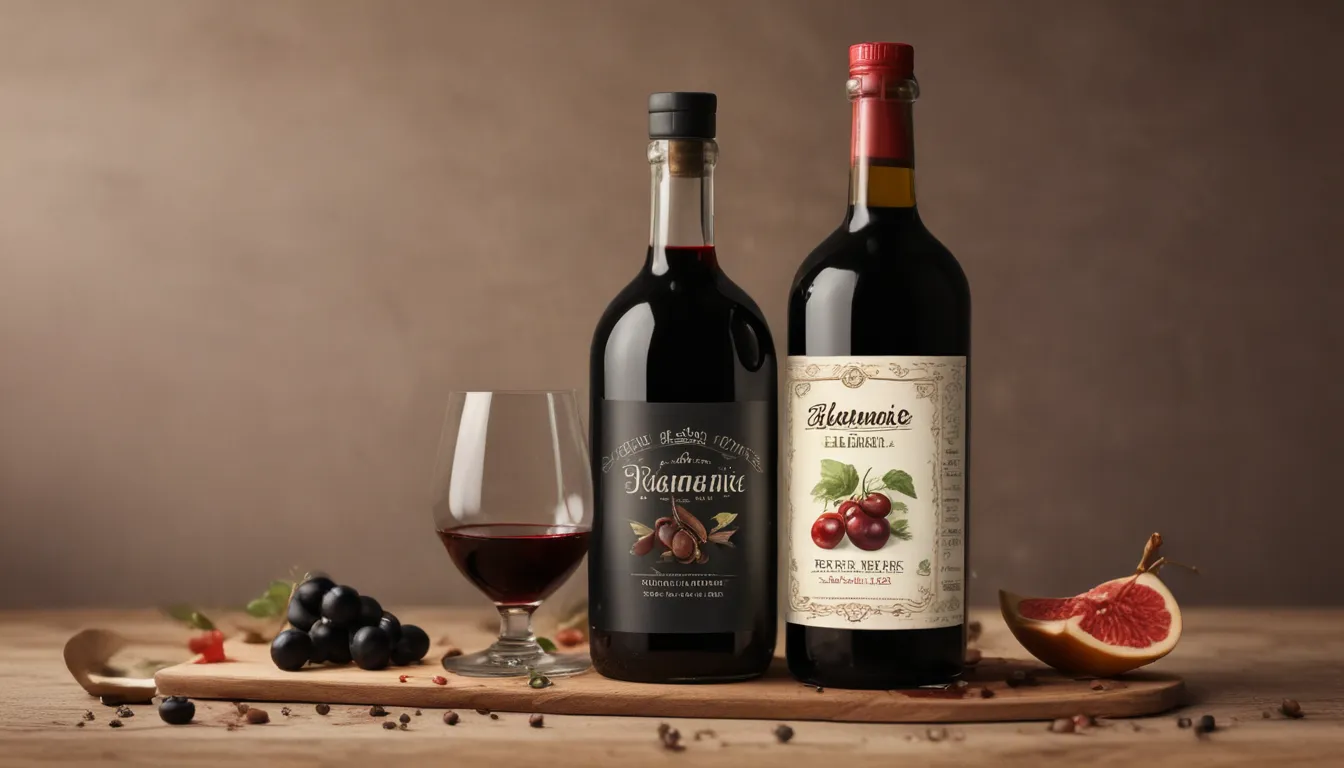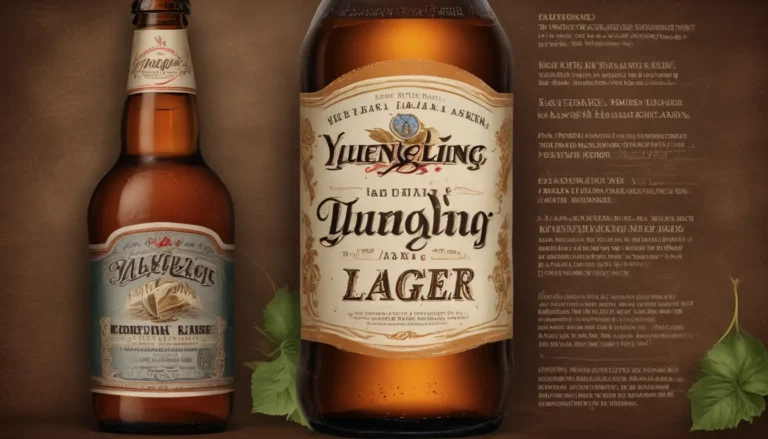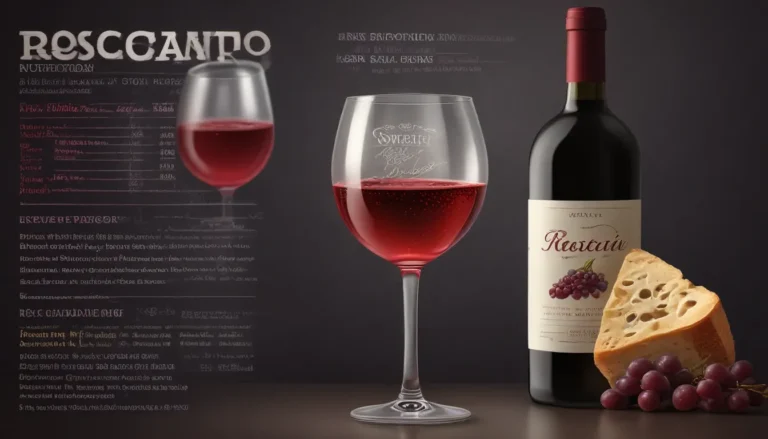The pictures in our articles might not always show exactly what the text is talking about. We use these images to make the article more interesting and eye-catching. They are there to add to the text, but not to replace it or show every detail.
Balsamic vinegar is more than just a condiment; it's a culinary gem that has captured the hearts of food enthusiasts worldwide. With its origins in Italy and a unique production process, balsamic vinegar adds a tangy and rich flavor to dishes, making it a staple in many kitchens. But there's so much more to this dark, syrupy vinegar than meets the eye. In this article, we'll delve into 19 intriguing facts about balsamic vinegar that will deepen your appreciation for this versatile and healthy ingredient. From its health benefits to its aging process and diverse uses, balsamic vinegar truly has a lot to offer. So, let's uncover the secrets behind this delectable ingredient and explore why it has earned a special place in the hearts of food lovers around the world.
Exploring the Origins of Balsamic Vinegar
- Balsamic vinegar, also known as Aceto Balsamico, has its roots in Italy and has been produced in the regions of Modena and Reggio Emilia for centuries.
Understanding the Production Process
- The traditional method of making balsamic vinegar involves cooking grape must, which is the juice from freshly crushed grapes, and then fermenting it to create the unique flavor profile.
Unraveling the Aging Process
- Balsamic vinegar is aged in wooden barrels, typically made from oak or cherry wood, which contributes to its rich and complex flavor. The longer it's aged, the more expensive and luxurious it becomes.
Embracing the Sweet and Tangy Flavor
- The distinctive combination of sweetness and tanginess in balsamic vinegar makes it a popular ingredient in salad dressings, marinades, and sauces.
Exploring Versatile Uses
- Balsamic vinegar isn't just limited to dressings and sauces; it can also be drizzled over fruits, vegetables, and desserts like strawberries and ice cream.
Uncovering Potential Health Benefits
- Some studies suggest that balsamic vinegar may have antioxidant and antimicrobial properties, as well as potential benefits for digestion and weight management.
Diving into Different Grades
- Traditional balsamic vinegar is aged for a minimum of 12 years, while commercial varieties may have shorter aging periods or be made using different methods.
Appreciating its Low-Calorie Nature
- Balsamic vinegar is a great option for those watching their calorie intake, as it adds flavor to dishes without significantly increasing calorie count.
Enhancing the Flavor of Various Foods
- From salads and roasted vegetables to grilled meats and cheese, balsamic vinegar can elevate the taste of a wide range of dishes.
Storing Balsamic Vinegar
- To preserve its flavor and composition, balsamic vinegar should be stored in a cool, dark place, away from heat and light.
Leveraging its Meat Tenderizing Qualities
- The acidity in balsamic vinegar can help tenderize tougher cuts of meat, making it a versatile marinade ingredient.
Exploring Long Aging Periods
- Some balsamic vinegars can be aged for up to 100 years, resulting in rare and highly prized culinary delights.
Celebrating its Role in Italian Cuisine
- Balsamic vinegar plays a significant role in traditional Italian dishes, adding depth and flavor to recipes like Caprese salad, risotto, and panzanella.
Embracing its Cleaning Properties
- Mixed with water, balsamic vinegar can serve as an effective and environmentally-friendly cleaner for surfaces like stainless steel and glass.
Highlighting Grape Varieties
- Balsamic vinegar can be made from various grape varieties, with traditional vinegars using grapes like Lambrusco, Trebbiano, or Sangiovese.
Infusing with Other Flavors
- Some producers offer flavored balsamic vinegars, such as raspberry, fig, or garlic-infused varieties, to enhance dishes.
Noting its Long Shelf Life
- When stored properly, balsamic vinegar can last for several years, ensuring you can enjoy its delicious flavor over an extended period.
In conclusion, balsamic vinegar is a versatile and flavorful ingredient with a rich history and wide array of culinary uses. Whether you're a gourmet chef or a casual home cook, incorporating balsamic vinegar into your recipes can elevate the taste of your meals to a whole new level. With its complex flavor profile, potential health benefits, and long shelf life, balsamic vinegar deserves its special place in the world of food enthusiasts. So, next time you're in the kitchen, consider reaching for a bottle of balsamic vinegar to add a unique and tangy twist to your favorite dishes.
Frequently Asked Questions
- What is balsamic vinegar?
-
Balsamic vinegar is a dark, syrupy vinegar made from the juice of pressed grapes, typically of the Trebbiano variety, and aged in wooden barrels to develop its distinct flavor.
-
How is balsamic vinegar different from regular vinegar?
-
Balsamic vinegar undergoes a lengthy aging process, resulting in a thicker consistency and more pronounced flavor, unlike regular vinegar made from fermented alcohol without aging.
-
What are the health benefits of balsamic vinegar?
-
Rich in antioxidants, balsamic vinegar may help protect against free radicals and inflammation, as well as potentially aid in lowering cholesterol levels.
-
How should balsamic vinegar be stored?
-
To maintain its flavor, store balsamic vinegar in a cool, dark place away from sunlight and heat, sealed tightly to prevent oxidation.
-
Can balsamic vinegar be used for cooking?
-
Absolutely! Balsamic vinegar is a versatile ingredient perfect for salads, marinades, sauces, and desserts, adding depth and complexity to recipes.
-
Is balsamic vinegar gluten-free?
- Yes, balsamic vinegar is typically gluten-free, but it's recommended to check labels or contact manufacturers for additional information on ingredients.
Exploring the rich history, unique production process, and diverse culinary applications of balsamic vinegar can enhance your culinary experiences. As you continue to experiment with this iconic ingredient, remember to savor its flavors, appreciate its health benefits, and enjoy the creative possibilities it offers in the kitchen. Cheers to the delightful world of balsamic vinegar and the culinary wonders it brings to your table!






